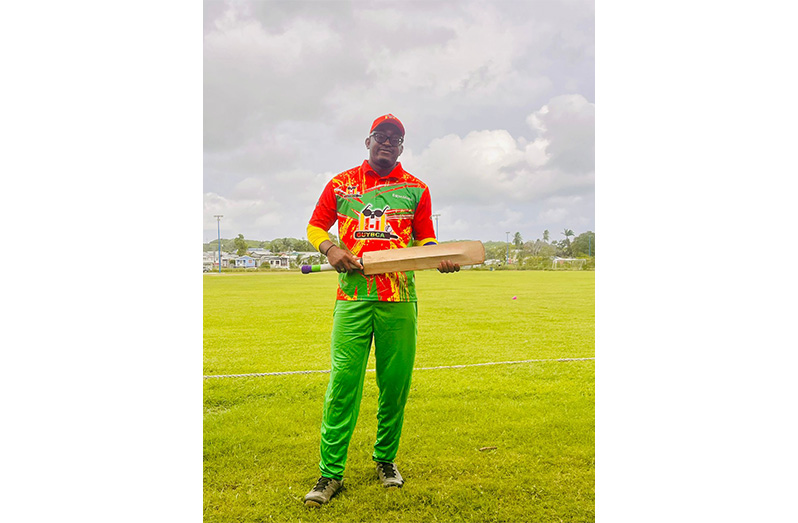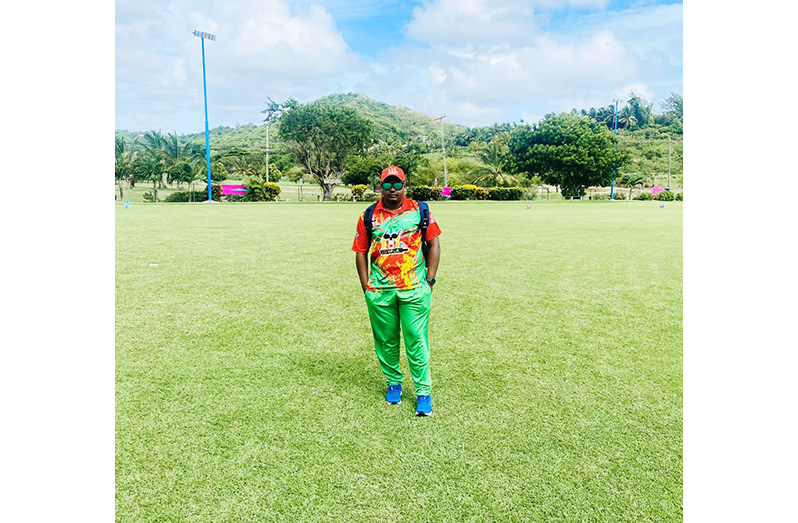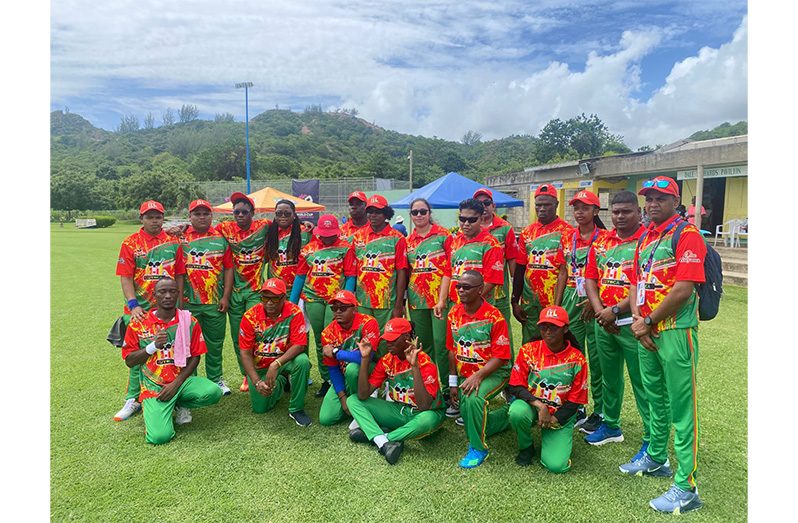– Blind Cricket and the GuyBCA Team’s Regional Return
CRICKET is easily the most popular game in the Caribbean, and, in Guyana, the culture of cricket is as vibrant as anywhere else. But a new team is reintroducing the game with a twist: blind cricket. This year, the Guyana Blind Cricket Association (GuyBCA) competed in the 11th Regional Blind Cricket Tournament in Barbados, which took place from May 21 to May 28. It was their return to competitive action after nearly a decade. Now back home, team captain Kevin Douglas and coach Travis Mohammed are reflecting on the experience and what it means for the sport and the visually-impaired community in Guyana.

A Game That Goes Beyond Sight: Captain Kevin Douglas
Thirty-three-year-old team captain and seasoned cricketer Kevin Douglas, first played blind cricket in 2008 and represented Guyana the following year. Back then, the idea of visually impaired people playing a game like cricket was still a new idea, and although he harboured a few fears, Kevin played and quickly fell in love with the game. “When I first started playing or was learning to play cricket, I wasn’t afraid, but I was nervous. Because it was the first time I ever played against another team and I was the youngest on the team,” he said. The recent tournament in Barbados, though challenging, was rewarding. The GuyBCA team didn’t make it to the next stage, but Kevin is still proud of their performance. “Our game was successful,” he added, “But the only thing, we didn’t make it to the running zone.”
Kevin is visually impaired, a condition that both he and his family noticed quite early in his school years. Describing his vision, he shared that, “I could see but I can’t say how far. When the place is bright, I can see from half of the pitch. But when it’s dark, I can only see where we’re walking,” he shared. After playing the game of cricket for more than a decade, Kevin is used to the questions that come when he tells others he plays blind cricket. “How blind people are going to see the ball? How are they going to know where it is?” Kevin often responds to these questions with an invitation to see the game first hand. “Explaining blind cricket and seeing it in person is when you believe, when you know blind people could actually play,” he said.
A frequent and bold voice on the rights of people with disabilities, Kevin believes there’s a need for more public support. He shared that, “More support is going to boost most of the players,” adding, “Some of the players come from all over Guyana, so we could at least get a tournament with ourselves and people could actually see how the game is played.” For Kevin, cricket is more like a way of life and his teammates are more like family. “All of them are good players, they’re totally blind and they don’t know what colour I am. But the support I get from them is like family,” he said.
Beyond the game, Kevin also highlighted the daily challenges that blind and visually impaired persons face in Guyana. As he emphasised, there is much more space in Guyana for consideration and change in perspective when it comes to the blind and visually impaired in Guyana. “When we go to the Caribbean, people stop and put on a hazard light and give you clearance across the road,” he added, “Guyana, we don’t have the support for that. We need a lot of work in that area.” Kevin hopes that through visibility and education, more Guyanese can understand that being visually impaired doesn’t mean being incapable. “Not because you’re visually impaired means that you can’t play cricket. That’s what a lot of people in Guyana don’t understand,” he said.

New Experience and Changing Perspective: Coach Travis Mohammed
One Guyanese that has had his opinion on blind and visually impaired people in Guyana changed is the team’s coach Travis Mohammed. For Travis, it was his first time working with a blind cricket team. He had only two months to prepare the group before the tournament, but it was a journey that changed his perspective. Having been a coach and player for years, Travis shared that before working with the GuyBCA team, his interaction with people who are visually impaired or blind was limited, and his experience coaching them was nonexistent. “They reached out to me two months ago and they asked if I could help them to prepare for the regional tournament coming up in Barbados. And I was anxious because getting to know them and see how they go about with their lifestyle and to coach them even in cricket as a sport, I was anxious to do it. But I took the job on,” he added, “It was my first time coaching a blind team, it was even my first time interacting with a blind person.”
Despite the challenges, Travis said there was little difference in how he approached training. “Coaching them and coaching a regular team, it’s almost the same,” he noted. “They understand themselves and I find it interesting how they field in position, batting, listening to the ball, everything.” He admitted that at first, he was unsure of how it would all come together, especially with the B1 category, which includes players who are completely blind. But they surprised him. “Even though they are totally blind, they could bowl straight to the batter just by listening to calls from the keeper, it was amazing to see.”
Although the team didn’t win the tournament, Travis said what they accomplished was impressive. Guyana’s B1 player Anthony Robinson gained an impressive 146 runs, which was the highest runs scorer for that category, and B3 player Joshua Augustin accomplished an additional 198 runs as the second highest runs scorer for the category. Adding to the challenges the team faced during practice, Travis says that their accomplishments are even more impressive than most. “They haven’t played a competitive match in nine years. We did not have much practice, no pitch practice, due to the weather and inconsistency with getting grounds, but they did great.”
At the closing of the tournament, he told the team just how proud he was. “I’m very happy with their performance and the way that they carried themselves during the tournament.” Moving forward, Travis hopes the Guyanese public can come to see blind cricket as they would any other sport. “People should support the game of blind cricket, because they feel the same joy as a regular cricketer playing a game,” he added, “I wouldn’t label them or the game as something different.”



.jpg)








